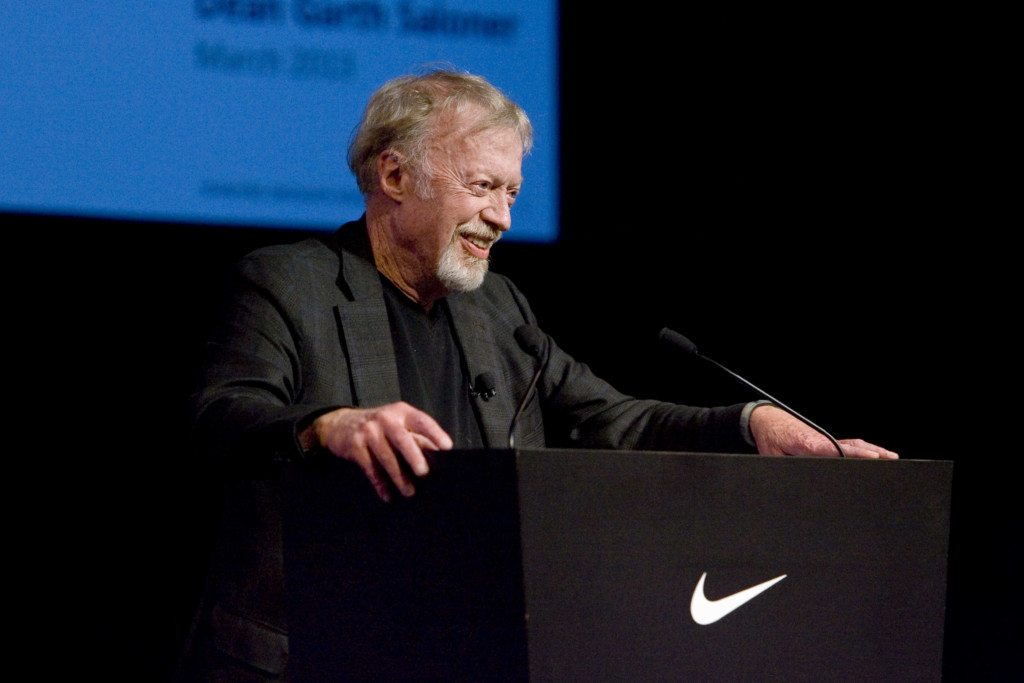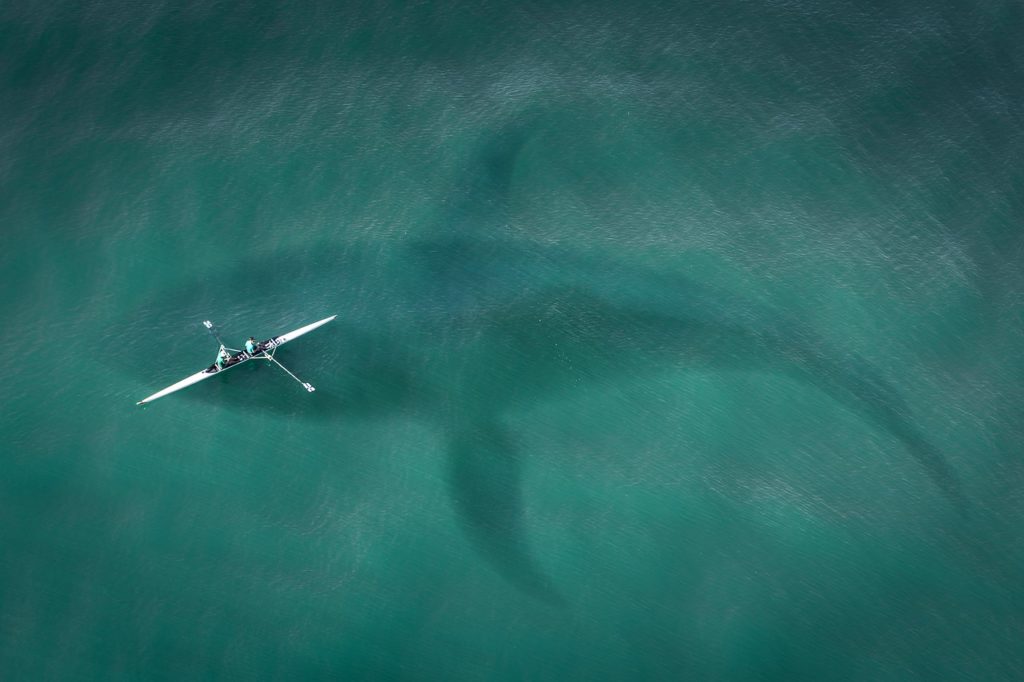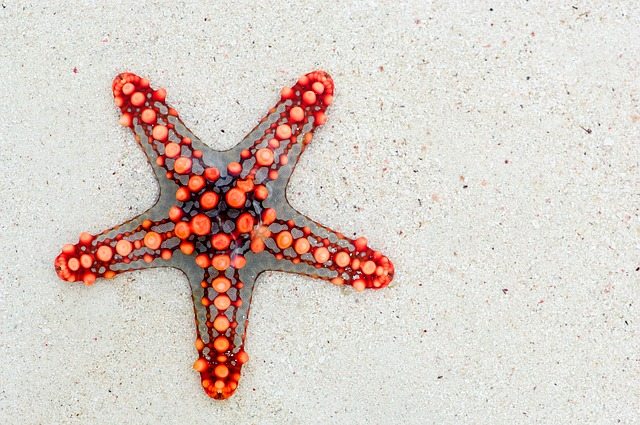
I wasn’t supposed to like this book. I’m married to a loyal adidas employee. When it comes to sportswear, it’s three stripes or nothing for me. I’m also not a runner (unless I’m chasing a soccer ball).
So, Nike co-founder Phil Knight’s book, Shoe Dog, had a tough hill to climb to sustain my attention. But once I started, I couldn’t put it down. I devoured it in three days. The book is *that* good.
Phil Knight had a crazy idea. In his final year at Stanford business school, he wrote a paper arguing that Japanese shoes could make deep cuts into the shoe market, which was dominated by Germans at the time.
Most of these senior research papers are thrown into a drawer (worse, the trash), never to be picked up again.
But Knight actually decided to do something with his paper. He started importing shoes from Japan and eventually started his own gig out of a run-down warehouse in Portland, Oregon. That’s how Nike was born.
In the book, Knight describes the journey of his crazy idea. I can’t tell if the book was ghostwritten, but if not, Phil Knight easily could have been a prominent author in a different life. It’s a beautifully written, captivating story, filled with contrarian life lessons. It’s the story of a self-proclaimed rebel who defies all conventional wisdom—and all odds—to go from zero to Nike.
Here are the 18 life lessons I got from the book. The portions quoted from the book are in italics.
1. Crazy ideas change the world
History is one long processional of crazy ideas. The things I loved most—books, sports, democracy, free enterprise—started as crazy ideas.
So that morning in 1962 I told myself: Let everyone else call your idea crazy. Just keep going. Don’t stop. Don’t even think about stopping until you get there, and don’t give much thought to “where” is.
[Editor’s Note: Albert Einstein would agree: “If at first the idea is not absurd, then there is no hope for it.”].
2. In sales, belief is irresistible.
Driving back to Portland I’d puzzle over my sudden success at selling. I’d been unable to sell encyclopedias, and I’d despised it to boot. I’d been slightly better at selling mutual funds, but I’d felt dead inside. So why was selling shoes so different? Because, I realized, it wasn’t selling. I believed in running. I believed that if people got out and ran a few miles every day, the world would be a better place, and I believed these shoes were better to run in. People, sensing my belief, wanted some of that belief for themselves. Belief, I decided. Belief is irresistible.
3. Act first and apologize later
Somehow, in meeting after meeting, I held my tongue. Everything my banker said, I ultimately accepted. Then I’d do exactly as I pleased. I’d place another order with [Knight’s Japanese supplier], double the size of the previous order, and show up at the bank all wide-eyed innocence, asking for a letter of credit to cover it. My banker would always be shocked. You want HOW much? And I’d always pretend to be shocked that he was shocked. I thought you’d see the wisdom . . . I’d wheedle, grovel, negotiate, and eventually he’d approve my loan.
4. Fail fast.
But my hope was that when I failed, if I failed, I’d fail quickly, so I’d have enough time, enough years, to implement all the hard-won lessons. I wasn’t much for setting goals, but this goal kept flashing through my mind every day, until it became my internal chant: Fail fast.
5. Creating something adds meaning to your life.
I wanted to build something that was my own, something I could point to and say: I made that. It was the only way I saw to make life meaningful.
When you make something, when you improve something, when you deliver something, when you add some new thing or service to the lives of strangers, making them happier, or healthier, or safer, or better, and when you do it all crisply and efficiently, smartly, the way everything should be done but so seldom is—you’re participating more fully in the whole grand human drama. More than simply alive, you’re helping others to live more fully, and if that’s business, all right, call me a businessman. Maybe it will grow on me.
6. Front runners work the hardest and risk the most.
I went for long runs, musing on every detail while racing the wild geese as they flew overhead. Their tight V formations—I’d read somewhere that the geese in the rear of the formation, cruising in the backdraft, only have to work 80 percent as hard as the leaders. Every runner understands this. Front runners always work the hardest, and risk the most.
7. When you’re starting out, you have to make do with the second best.
We couldn’t afford to fix the broken glass [in Nike’s first office], so on really cold days we just wore sweaters.
Woodell occupied an office that was hardly deluxe. It sat on the top floor of an old shoe factory, and a water tower directly overhead was caked with a century’s worth of pigeon poop. Plus, the ceiling beams were gapped, and the building shook every time the die cutters stamped out the uppers. In other words, throughout the day a steady rain of pigeon poop would fall on Woodell’s hair, shoulders, desktop. But Woodell would simply dust himself off, casually clear his desk with the side of his hand, and continue with his work. He also kept a piece of company stationery carefully draped over his coffee cup at all times, to ensure it was only cream in his joe.
The first time I ever sent Bob Woodell to a trade show, the airline lost his wheelchair [Editor’s note: Bob Woodell was one of Nike’s first employees and a former long jumper whose vertebrae had been crushed after the collapse of a float in a parade]. And when they found the wheelchair, the frame was bent like a pretzel. No problem. In his mutilated chair, Woodell attended the show, ticked off every item on his to-do list, and came home with an ear-to-ear mission-accomplished smile on his face.
8. If you don’t grow, you die.
Our cozy apartment was now completely inappropriate [for my newborn son]. We’d have to buy a house, of course. But could we afford a house? I’d just started to pay myself a salary. And in which part of town should we buy? Where were the best schools? And how was I supposed to research real estate prices and schools, plus all the other things that go into buying a house, while running a start-up company? Was it even feasible to run a start-up company while starting a family? Should I go back to accounting, or teaching, or something more stable? Leaning back in my recliner each night, staring at the ceiling, I tried to settle myself. I told myself: Life is growth. You grow or you die.
9. Persist in the face of failure.
The following Sunday, sitting over breakfast with his wife, Bill Bowerman’s gaze drifted to her waffle iron [Editor’s note: Bill Bowerman was a legendary track coach and Nike’s co-founder]. He noted the waffle iron’s gridded pattern. It conformed with a certain pattern in his mind’s eye, a pattern he’d been seeing, or seeking, for months, if not years. He asked Mrs. Bowerman if he could borrow it. He had a vat of urethane in his garage, left over from the installation of the track. He carried the waffle iron out to the garage, filled it with urethane, heated it up—and promptly ruined it. The urethane sealed it shut, because Bowerman hadn’t added a chemical releasing agent. He didn’t know from chemical releasing agents. Another person would have quit right then. But Bowerman’s brain also didn’t have a releasing agent. He bought another waffle iron, and this time filled it with plaster, and when the plaster hardened the jaws of the waffle iron opened, no problem. He took the resulting mold to the Oregon Rubber Company, and paid them to pour liquid rubber into it. Another failure. The rubber mold was too rigid, too brittle. It broke right away. But Bowerman felt he was getting closer.
I look back over the decades and see him toiling in his workshop, Mrs. Bowerman carefully helping, and I get goosebumps. He was Edison in Menlo Park, Da Vinci in Florence, Tesla in Wardenclyffe. Divinely inspired. I wonder if he knew, if he had any clue, that he was the Daedalus of sneakers, that he was making history, remaking an industry, transforming the way athletes would run and stop and jump for generations. I wonder if he could conceive in that moment all that he’d done. All that would follow. I know I couldn’t.
10. Honesty is crucial in life and in business
I gazed around the convention center, at the thousands of sales reps swarming the booths, the other booths. I heard them oohing and aahing at all the other shoes being introduced for the first time. I was that boy at the science fair who didn’t work hard enough on his project, who didn’t start until the night before. The other kids had built erupting volcanoes, and lightning machines, and all I had was a mobile of the solar system made with mothballs stuck to my mother’s coat hangers.
They gave us business. They actually placed orders with us. By the end of the day we’d exceeded our grandest expectations. We were one of the smash hits of the show. At least, that’s how I saw it.
The man laughed. “We’ve been doing business with you guys for years,” he said, “and we know that you guys tell the truth. Everyone else bullshits, you guys always shoot straight. So if you say this new shoe, this Nike, is worth a shot, we believe.”
[Editor’s Note: This passage reminded me of this Warren Buffett quote: “It takes 20 years to build a reputation and five minutes to ruin it. If you think about that, you’ll do things differently.”]
11. Doubt, pain, and uncertainty are part of everyone’s creative process.
More than once, over my first cup of coffee in the morning, or while trying to fall asleep at night, I’d tell myself:
Maybe I’m a fool? Maybe this whole damn shoe thing is a fool’s errand?
Michelangelo was miserable while painting [the ceiling of the Sistine Chapel]. His back and neck ached. Paint fell constantly into his hair and eyes. He couldn’t wait to be finished, he told his friends.
12. Reject micro-management.
My management style wouldn’t have worked for people who wanted to be guided, every step, but this group found it liberating, empowering. I let them be, let them do, let them make their own mistakes, because that’s how I’d always liked people to treat me.
13. Do more than what you’re comfortable with.
I tried to be nonchalant as I signed the papers and placed an order for five thousand more shoes, which would cost twenty thousand dollars I didn’t have. Kitami said he’d ship them to my East Coast office, which I also didn’t have. I promised to wire him the exact address.
14. Focus on the spirit behind the product, not the product itself.
The ad showed a single runner on a lonely country road, surrounded by tall Douglas firs. Oregon, clearly. The copy read: “Beating the competition is relatively easy. Beating yourself is a never-ending commitment.” Everyone around me thought the ad was bold, fresh. It didn’t focus on the product, but on the spirit behind the product, which was something you never saw in the 1970s.
15. Invest in your employees
I complained about my business. Even after going public, there were so many problems. “We have so much opportunity, but we’re having a terrible time getting managers who can seize those opportunities. We try people from the outside, but they fail, because our culture is so different.” Mr. Hayami nodded. “See those bamboo trees up there?” he asked. “Yes.” “Next year . . . when you come . . . they will be one foot higher.” I stared. I understood.
16. Being a rebel puts a bulls-eye on your back
I’d like to warn the best of them, the iconoclasts, the innovators, the rebels, that they will always have a bull’s-eye on their backs. The better they get, the bigger the bull’s-eye. It’s not one man’s opinion; it’s a law of nature.
17. Dominance brings arrogance
I WAS DEVELOPING an unhealthy contempt for Adidas. Or maybe it was healthy. That one German company had dominated the shoe market for a couple of decades, and they possessed all the arrogance of unchallenged dominance.
[Editor’s Note: Although Knight doesn’t acknowledge this, Nike appears to have developed the same dominance and the same level of arrogance].
18. Oregonians are tougher for a reason.
In the book, Knight repeats an encounter from a favorite teacher: Speaking of the Oregon trail, his teacher would tell Knight: “The cowards never started, and the weak died along the way. That leaves us.”




